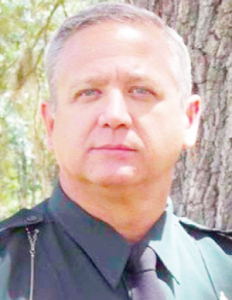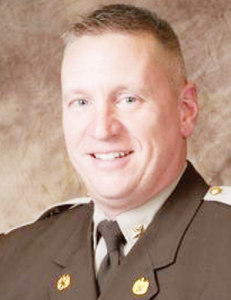by Joseph P. Tartaro
Executive Editor
What motivates sheriffs and police chiefs is not the same. Sheriffs are hired by the people of their counties in popular elections and tend to think like the people who put them in office.
Police chiefs think like the mayors and other politicians who put them and keep them in office.
So it is not surprising that police chiefs join their mayors and other public officials—including governors and presidents—when it comes to the firearms civil rights issue, and that sheriffs take stands in support of individual rights by speaking out publicly and directly to state legislatures.
This trend became more obvious recently when sheriffs in several states took public stands critical of newly passed gun control laws, some speaking out, and some, as in Colorado, Missouri and New York, either filing their own suits or joining challenges to this onerous new laws that had been filed by others plaintiffs.
Some have gone so far as to flatly refuse to enforce the laws as they are written. TGM has previously reported on such a refusal by Erie County, NY, Sheriff Tim Howard to enforce Gov.
Andrew Cuomo’s SAFE Act.
While this may seem extreme to some citizens, it is not such an extreme law enforcement position. After all, it is not much different from a sheriff’s deputy, police officer or state trooper deciding after stopping or detaining someone that they will not be detained, but merely given a warning, or possibly a lesser charge. People in law enforcement have always had that much discretion with other laws.
But the revolt of the sheriffs has not slowed.
Now, for example, The Baltimore Sun reports there is a growing revolt in rural counties against Maryland’s new gun control law that has spread to far Western Maryland, where the Garrett County sheriff declared that state’s new gun law unconstitutional and said he would enforce only the provisions he believes are valid.
The declaration by Sheriff Rob Corley follows the adoption of resolutions by the governing bodies of Carroll and Cecil counties saying those jurisdictions will not use any county resources to enforce the Maryland Firearms Safety Act, passed by the General Assembly this year and signed by Gov. Martin O’Malley in May.
Among other things, the law bans the sales of certain guns classified as “assault weapons,” limits the capacity of magazines and requires new handgun purchasers to be licensed and fingerprinted to deter illegal purchases.
Corley’s statement is a full-throated assertion of gunowners’ rights, declaring that the new state law “violates the Second Amendment to the Constitution” and that the sheriff “will make every effort to protect our citizens’ constitutional rights.” The Sun seemed to take issue with Corley, saying his “statement uses language that is in many places identical to resolutions passed by the Cecil County Council and the Carroll County commissioners in May, using the same quotes from Thomas Jefferson, John Adams and Alexander Hamilton.” How much practical effect the resistance will have is uncertain, The Sun noted. Gregory M. Shipley, spokesman for the Maryland State Police, is quoted as saying that troopers would enforce the law throughout Maryland.
In Garrett, Corley told the county commissioners, according to The Sun, that his deputies would practice “discretionary enforcement” of the new law except in violent crimes and cases involving felons or those with a dangerous mental illness.
But there can be a downside to such independent thinking by sheriffs.
In Florida, for example, Liberty County Sheriff Nicholas Finch was arrested, according to The Guardian Express.
The residents of Liberty County, in the Florida panhandle, were probably surprised to hear that their sheriff was arrested “for doing his job.” Sheriff Nicholas Finch, 50, was booked into the Liberty County Jail around about 5 p.m. one day recently charged with official misconduct. He was released from jail on his own recognizance shortly after being booked in.
Florida Governor Rick Scott named Carl Causey to the post of interim county sheriff about 40 miles west of the state capital, Tallahassee.
The charge is related to an incident in March, in which a deputy sheriff arrested a resident of the county for carrying a concealed weapon. Finch made the decision to release the individual shortly afterwards. It is alleged that he then altered or destroyed paperwork relating to the arrest.
Finch has not commented on the matter himself, but his attorney, Jimmy Judkins, released a statement which read, ”The records at the jail show exactly what happened in this case and the records speak the truth.
The sheriff looked at the facts and said ‘I believe in the Second Amendment and we’re not going to charge him.’ That is not misconduct at all. That is within the sheriff’s prerogative whether to charge someone or not.” It appears, therefore, that the Florida sheriff was arrested for doing his job.
Following the March 8th incident, the Florida Department of Law Enforcement (FDLE) served a search warrant at the county jail. A press release from FDLE announced the arrest in early June. The case will go to the State Attorney’s Office, 2nd Judicial Circuit.
One Liberty County resident told WCTV “In my personal opinion he was doing his job and people didn’t like it.” Carl Causey, who will replace Sheriff Finch – at least until July 4th – was the Assistant Special Agent in Charge for FDLE’s Pensacola Region. Prior to that, he spent 11 years with the Escambia County Sheriff’s Office.
Finch was elected Sheriff of Liberty County in November 2012.
Meanwhile, the Sheriff’s Association in the neighboring state of Georgia has made a similar pledge to protect the 2nd Amendment. A statement on the GSA website reads “The sheriffs took an oath to support the Constitution and will stand by the 2nd Amendment.
The sheriffs will aggressively oppose federal or state legislation which infringes upon law-abiding citizens’ right to bear arms.
Sheriffs and police chiefs from across the country have voiced similar opinions. The case of Finch may be the opening shot in a battle between the politicians and law enforcement.





